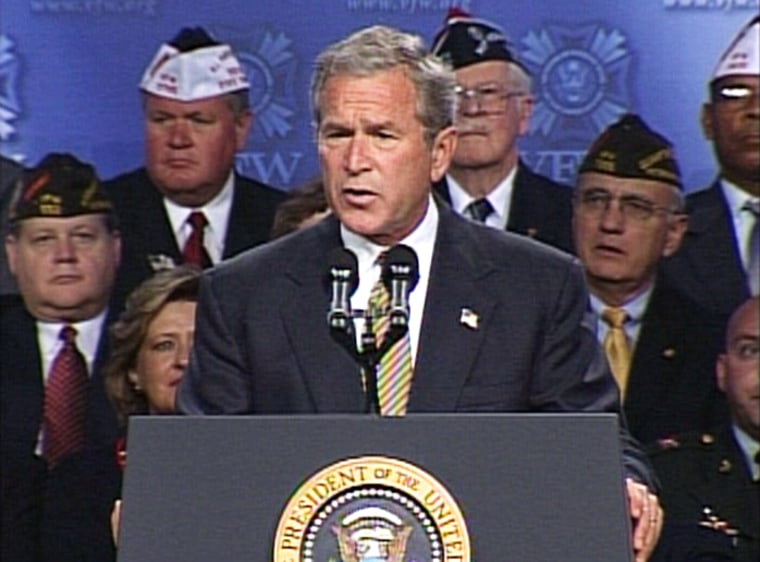With about 11 weeks before the election, and with his support from military families eroding, the president spoke today to a veterans group in Cincinnati and announced a massive troop withdrawal from Europe and Asia.
“Under the plan I’m announcing today, over the next 10 years, we will bring home about 60,000 to 70,000 uniformed personnel, and about 100,000 family members and civilian employees.”
The president said the initiative would give U.S. forces greater flexibility.
The troops brought home will eventually add up to about a third of the number normally posted overseas.
But the plan will not start for at least two years, and will have no impact on the 160,000 soldiers currently serving in Iraq and Afghanistan.
The death toll in Iraq is approaching 1,000, and with guard units on extended tours of duty, the Bush administration is under tremendous political pressure from military families.
Traditionally, veterans and members of the military lean towards Republicans. In the 1996 presidential election, veterans and members of the military broke for Bob Dole over Bill Clinton.
In 2000, they went for Bush over Gore. But this year, the failure to find banned weapons in Iraq, or evidence that Saddam Hussein was in league with al Qaeda, combined with lengthy deployments and proposed cuts in veterans’ benefits, are all hurting Bush’s military support.
Even a small shift in the military vote could prove decisive, because there are large numbers of military personnel and veterans in swing states like Florida, West Virginia, New Hampshire, and New Mexico.
But in the end, the real swing votes could come from Baghdad. Because of the Iraq occupation, more overseas military ballots will be cast in this election than at any point since the end of the Cold war.
On election day in Florida in 2000, Al Gore received 200 more votes than George W. Bush. Only after the overseas ballots were counted, including a few thousand from the military, did Bush emerge with a lead.
This time, both parties have representatives overseas and educational outreach programs to make sure members of the military are registered and know how and when to cast their ballot.
It’s yet another wild card that could determine this election.
